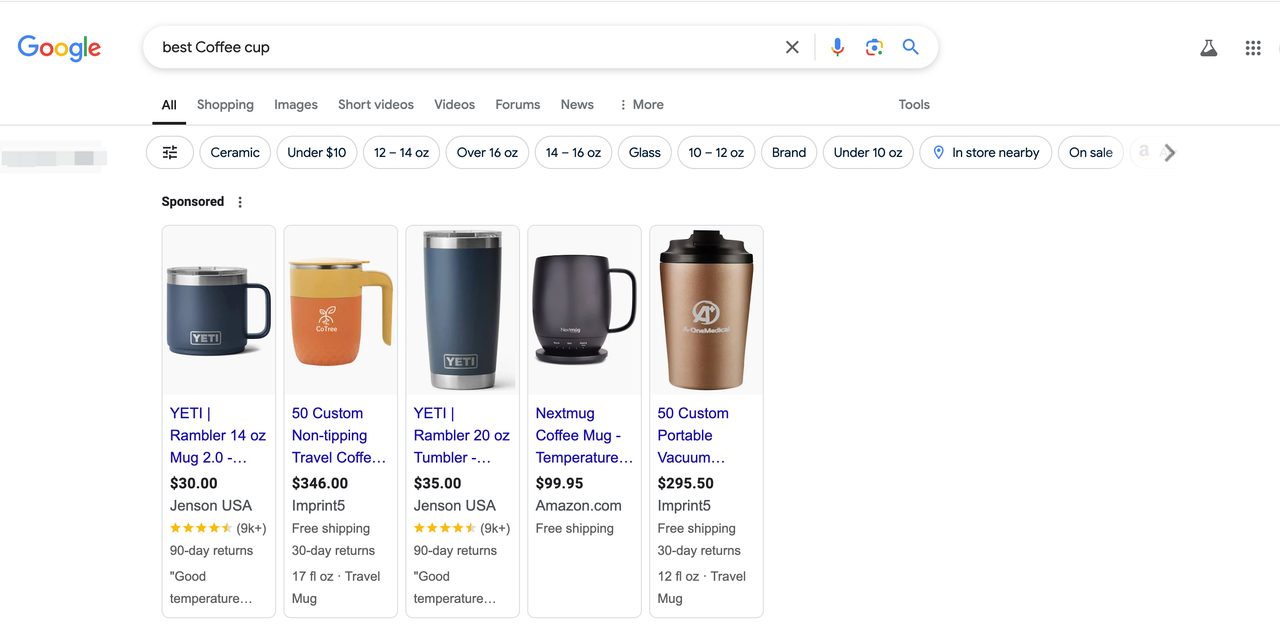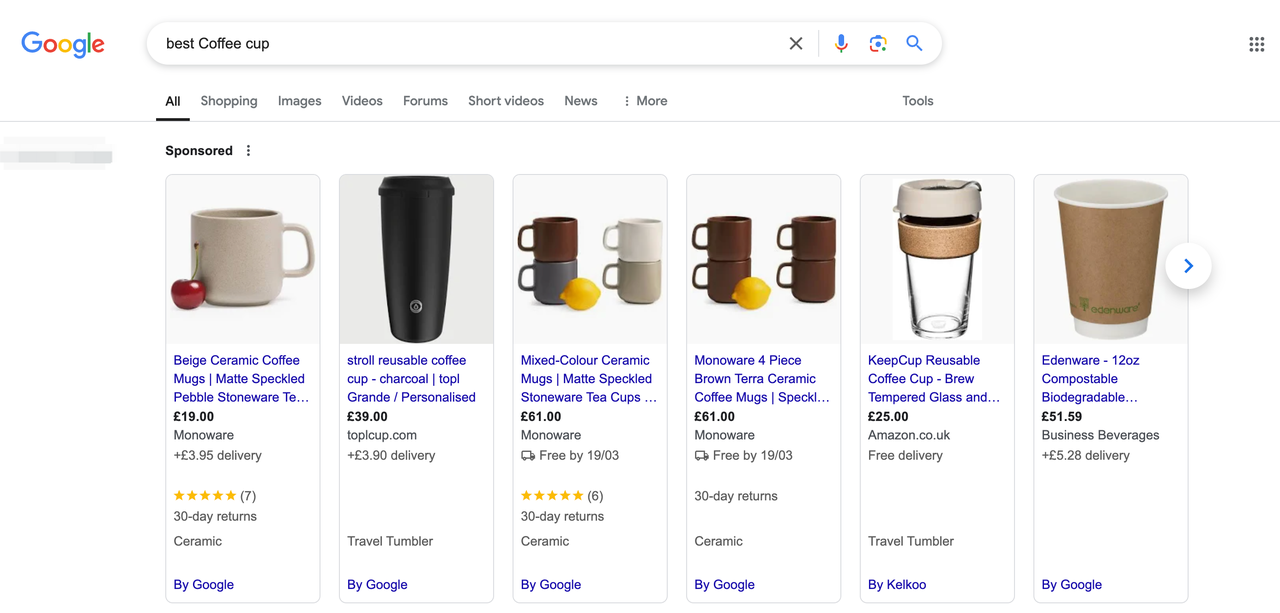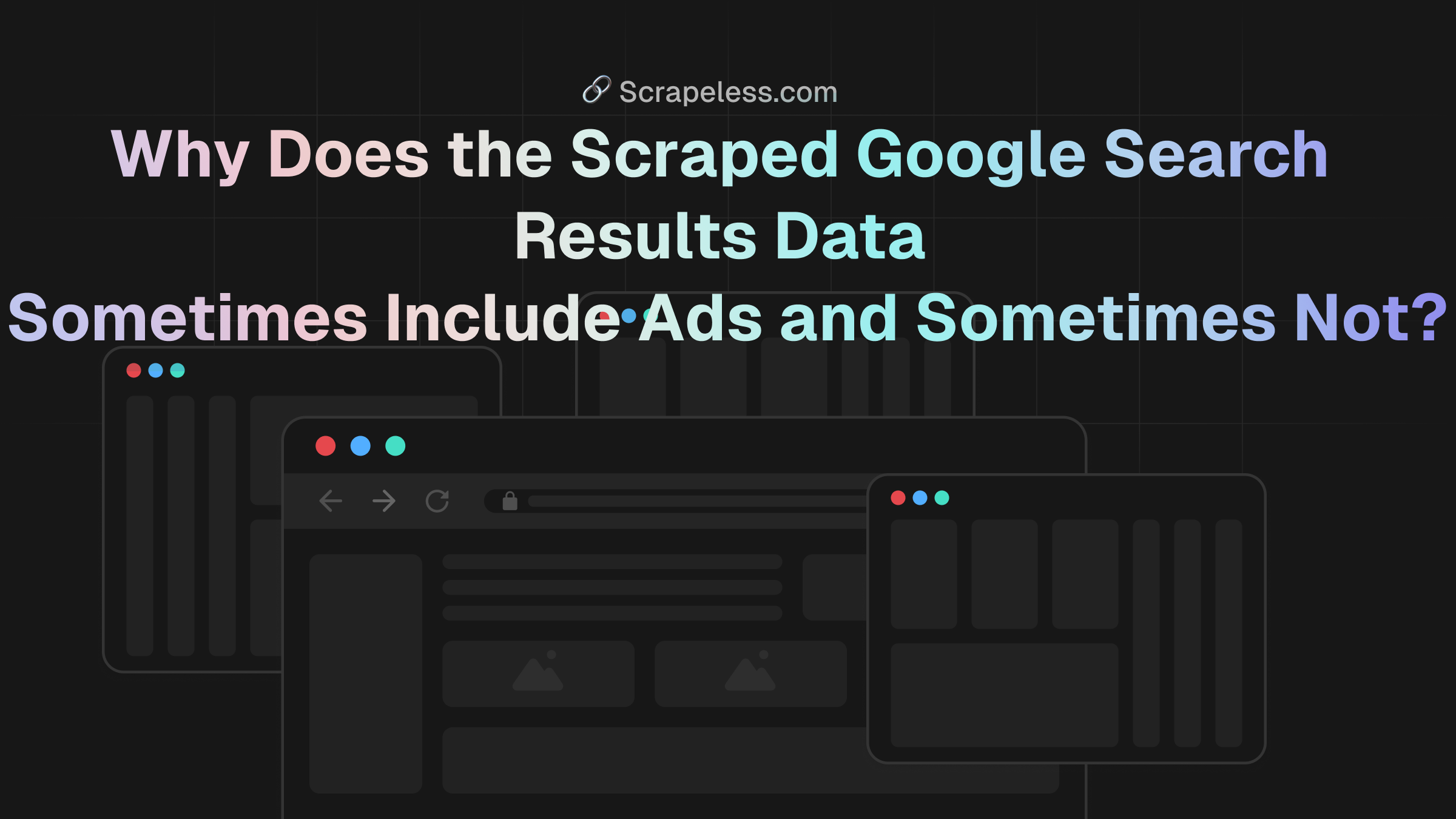Why Does the Scraped Google Search Results Data Sometimes Include Ads and Sometimes Not?
Advanced Data Extraction Specialist
When scraping Google search results using the Scrapeless Serp API, you may notice inconsistencies in ad data. This article explains why this happens and how to fix it.
Reasons for inconsistent advertising data
Geolocation and IP Addresses
Google customizes search results based on the user's geolocation. If the IP address or server location used by Scrapeless SerpApi is different from your actual browsing device, the search results may be different. For example, searching for "coffee shop" from a New York IP address will give different results than from a London IP address. This may affect whether ads and shopping data are displayed.
Here are the results of testing with different IP addresses using the keyword "best coffee cup". The real-time results illustrate that different IP addresses will get inconsistent results in Google searches.


Device and browser settings
Search results may vary depending on the device and browser used. Scrapeless SerpApi simulates a specific device or browser, and your actual browsing experience may use different settings. This may affect how certain search results are displayed or prioritized.
Personalization and user history
Google personalizes search results based on a user's search history, location, and other factors. If Scrapeless SerpApi does not take these personalization elements into account, the results it fetches may not match what an individual user sees in real time.
Google's dynamic SERP layout
Google frequently updates its search engine results pages (SERPs), introducing new features, layouts, and algorithms. These changes may cause discrepancies between the data scraped by Scrapeless SerpApi and the current live results visible to users.
Rate limiting and IP blocking
To prevent abuse, Google may impose rate limits or block IPs that make too many requests. If Scrapeless SerpApi's requests are too frequent or come from blocked IPs, it may receive data that is incomplete or different from normal user searches.
Solutions to reduce inconsistencies
1. Switch to residential proxies
Residential proxies can provide more stable and real user IP addresses, which helps reduce the inconsistency of advertising data and shopping data caused by IP addresses. By using residential proxies, you can simulate user visits from different regions and obtain more accurate data.
2. User uploads the proxy themselves
Users can use custom proxy settings in the service to select the appropriate proxy server based on their needs and network environment. This not only increases flexibility, but also ensures accurate data can be obtained in different regions and network conditions.
To improve this problem, Scrapeless will soon enable proxy options for the United States, Poland, Germany, the Netherlands, the United Kingdom, Brazil, and France. This will allow users to select proxies based on their geographical needs, ensuring more consistent and accurate data collection.
Scrapeless Serp API:
- Supports multiple search types: including Google Images, News, Maps, Shopping, Ads, etc.
- High-speed response: Return data within 2 seconds to ensure efficient crawling.
- Low cost: $0.1 / 1,000 queries, suitable for businesses of different sizes.
3. Set clear and fixed Language (hl), Country (gl) and Location
When crawling data from Google Ads, fixing Language (hl), Country (gl) and Location can ensure that the data obtained is consistent with the actual advertising delivery situation, avoiding deviations caused by personalized adjustments, regional differences, and language adaptation. For example, advertising display, bidding, and search results may be different in different countries. Fixing these parameters can ensure that the crawled data is accurate, stable, and consistent with the delivery effect of the target market.
Conclusion
When scraping Google search results with the Scrapeless SerpApi, understanding the causes of inconsistencies in ad data is critical to effectively scraping the web. By implementing the right strategies, such as using residential proxies, routing users through proxies, and enabling proxy options for specific countries, you can significantly reduce these inconsistencies. This ensures that the data you collect is as accurate and representative as possible, providing reliable insights for your analysis needs.
At Scrapeless, we only access publicly available data while strictly complying with applicable laws, regulations, and website privacy policies. The content in this blog is for demonstration purposes only and does not involve any illegal or infringing activities. We make no guarantees and disclaim all liability for the use of information from this blog or third-party links. Before engaging in any scraping activities, consult your legal advisor and review the target website's terms of service or obtain the necessary permissions.



